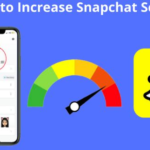
How long do movies stay in theaters? The recent coronavirus pandemic severely affects the movie business, particularly the theatres. However, streaming services kept the sector afloat. Now, going to the cinemas is once again a very popular pastime. But how long do movies stay in cinemas?
On average, movies remain in cinemas for four weeks. It’s not a number set in stone before the movie comes out. Everything depends on how well-liked the film is and how well it performs at the box office. While some films only have a two-week run in theatres, others remain there for much longer.
Various factors influence the theater’s decision to retain a film on its schedule. Location is also very important. For instance, a movie may be very popular in the U.S. yet perform poorly abroad. As a result, U.S. theatres will likely keep it on their schedules for longer. Let’s look at the specifics of the film’s theatrical runs in more depth.
How Long do Movies Stay in Theaters?
Most mainstream movies stay in theaters for an average of four weeks. Some only last for about two weeks, and some run significantly longer. Theater run duration is not scheduled in advance (although theaters and movie executives can attempt an educated guess for planning purposes). Theaters only have so much space.
The average time that mainstream films are shown in theatres is four weeks. Some barely last for a couple of weeks, while others go on for much longer. There is no set time for the theatre run (although theatres and movie executives can attempt an educated guess for planning purposes). If a theatre wants to stay in business, it must replace an older film with a newer, more popular film.
Why Did Kakashi kill Rin?
Movies With Long theatrical Runs
Some films were such box office successes that they remained in theatres much longer than anyone had anticipated. These films are:
- Rocky Horror Picture Show: 2,000+ weeks
- E.T.: 52+ weeks
- Star Wars: 44 weeks
- Back to the Future: 37 weeks
- Beverly Hills Cop: 30 weeks
Factors Involved in How Long a Movie Stays in the Theater

Some talk about supply and demand to describe how long a movie plays in theatres. But many other elements interact to decide how long a movie plays in theatres.
Popularity
First and foremost, based on a film’s level of popularity, you can predict how long it will last in theatres.
A movie will run for a longer period of time if more people desire to see it and buy tickets. All you need to do is search for popular movies on the internet to find out how well-liked a film is.
With creative marketing strategies and an abundance of advertisements, moviemakers occasionally reveal which films are popular to us before we even know it. Other times, the director or cast is mostly to blame for the success. Even if they know nothing about the film or have heard it wasn’t that great, people will get eager about a new Tarantino film or one featuring their favorite actor.
Audience Reception
The movie needs to be more than just well-liked. When viewers enjoy a film, its box office performance tends to improve. People share their opinions by word of mouth. They also publish numerous reviews online. If 5,000 people on Rotten Tomatoes think that a movie isn’t all that fantastic, you might decide to wait till it becomes available on a streaming service.
Experts also share their thoughts on different platforms. When a film receives excellent reviews from critics and is expected to compete for an award during award season, viewers may be more likely to see it.
How Old is Kakashi in Boruto and Naruto
Genre
A unique watching experience may be had in theatres because of the immersive screen and surround sound. Have you ever heard of the distinction between a movie that “you want to see in the theatres” and one that “you can watch at home”? The difference is frequently made depending on the movie’s genre.
Applying theatre amenities to action movies is especially useful. Action films, notably superhero movies, profit from the theater’s heightened effects. You can hear every sound made during a collision and feel the earth tremble, in addition to seeing the automobile chase as it takes place.
Due to the sensory overload you cannot experience at home; even mediocre movies can be entertaining when seen in a cinema. Theatrical screenings of children’s films are frequently advantageous, particularly when 3D technology is used. On the other hand, unless they want to see a romantic comedy or slapstick comedy as soon as it’s released, many individuals don’t feel the need for the movie theater’s big screen and audio system.
Competition

In the movie business, timing is crucial. Due to the fierce competition, movies must be released at a distinct time. When two highly anticipated films release at the same time, audiences may be forced to pick between them. But if these movies release within one month’s gap, they might have gone to both.
The Shawshank Redemption, perhaps one of the best films ever made, struggled at the box office as it tried to outperform Forrest Gump. Fortunately, even though more people viewed the movie on DVD and television than in theatres, it still managed to gain popularity over time.
How did Sasuke Get the Rinnegan?
Theater Prices
Over time, the cost of movie tickets has increased dramatically. The average ticket cost increased from $5.66 in 2001 to $9.77 in 2015. Remember that the average includes small, outlying theatres and second-run cinemas. If those averages strike you as being too low, you’re probably thinking of the cost of tickets at your neighborhood first-run theatre in a nice suburb.
Most theatres rely on concessions for one-third of their revenue. The remaining two-thirds are generated from ticket prices. Since fewer people are going to the theatres due to rising ticket prices, fewer films are being shown than they once were.
Box Office Numbers
When the interest in a movie was tremendous, there was a lot of excitement surrounding it. The theatres had big plans to keep it on schedule for a while before it even hit the screens. After that, it devastates the box office once it finally debuts. Naturally, if there isn’t enough interest from the audience, theatres will remove it from their schedule earlier.
In the opposite situation, the same theory applies. Perhaps no one anticipated a movie to do well at the box office, but after 2-3 weeks, it continues to trend. Then, theatres will adjust their plans and continue showing the film as long as there is demand. Look no further than E.T., The Extra-Terrestrial from 1982. The movie held the top spot in the box office rankings for sixteen weeks.
As long as it generated revenue, you can be sure that theatres continued to include it in their schedules. E.T. ran for over 50 weeks in many theatres because it was popular.
Do Movies Stay in Theaters Shorter Nowadays?

In general, movies stay in theatres for fewer days than in the 1980s or 1990s. But this depends on what you mean by “nowadays.” However, if you compare today’s movies with those that debuted 10–15 years ago, you’ll find that they average a similar amount of time in theatres.
Movies currently frequently have shorter theatrical runs than they did in the 1980s or 1990s because of the availability of DVDs, Blu-rays, and streaming services that weren’t available in the past. For instance, Back to the Future (1985) and Titanic (1997) remained in theatres for more than 20 weeks each due to the intense demand from moviegoers who had no other option to see the films.
Does Sasuke Die In Boruto?
Producers now frequently take advantage of those who don’t go to the movies by offering them the option to buy DVDs or stream them online immediately after their theatrical premieres. There is a standard 45-day lag between theatrical release and streaming services for movies. Movies typically leave cinemas within those 45 days and appear on streaming services like Netflix, Hulu, Disney+, HBO Max, Amazon Prime Video, etc.
The typical theatrical run of the films stays the same at around four weeks, just as it did with DVDs and Blu-rays roughly 10 to 15 years ago. Even yet, it’s far less than it was 30–40 years ago when films frequently played for over 10, even 20 weeks.
What Movie Stayed in the Box Office Top Longest?
The Extra-Terrestrial, which lasted in the Top 10 for 44 weeks, is the film that spent the most time on the Box Office Top 7 list. The following are more top films:
- Beverly Hills Cop (28 weeks)
- Tootsie, Top Gun (27 weeks)
- Titanic, Forrest Gump, Crocodile Dundee (26 weeks)
What Is The Longest Movie Ever To Play In Theaters?
The Chinese film Romance on Lushan Mountain, which has been screened four times daily at the Jiangxi Movie Circulation and Screening Company in Lushan, China, since its debut in 1980, holds the Guinness World Record for the longest theatrical run of a single film. Seeing the movie became a popular tourist destination there.
How Long does it Take to make a Movie?

Making a movie is one of the most challenging tasks. Having a story notion is one thing. After writing the script and locating the necessary cast and crew, filming may start.
Here are the details:
Timeline
Three major brackets may be seen on the film production timeline:
- Pre-production
- Production
- Post-production
Before pre-production can start, though, other steps still need to be finished.
Story, Script, and Finances
You’ll need funds, a script, and a narrative to start. If you’ve ever wondered what a movie producer does, one of the most crucial facets of their job is being involved in the entire process from start to finish. They recruit people to work on it after first selecting potential development material.
The producer then conducts pitches using the finished script to secure the movie’s finances. The length of this process will vary depending on the project. Quentin Tarantino spent five years developing the idea and plot of Kill Bill. Sylvester Stallone wrote the original Rocky movie script in just three days.
The Announcement
Normally, an announcement is made once all the abovementioned things have happened. At this point, a movie’s production is revealed.
8 Popular Anime For Children
Pre-Production
Pre-production is the practical phase. The producers, director, production manager, cinematographer, and other significant department heads create a movie plan. Of course, they must consider casting and who will take on specific parts. But they also need to think about assembling a cast, deciding on a spending strategy, and organizing a shooting schedule.
Production
Only after pre-production is finished and all schedules, budgets, cast members, and crew members have been decided upon does the project move into the production phase. Principal photography or shooting are other terms for this stage.
Here, actual footage is captured alongside actors speaking in front of the camera and on active sets. Of course, the time needed to shoot a movie depends on the movie. The number of weeks and months needed to shoot the movie will depend on its length, the number of different locations, and even its budget.
Who is Allen Greene?
Post-Production
You must enter post-production after your movie is finished. The most important step also tends to take the longest. When editing, you must not only piece together the movie segments but also fill in any plot holes.
Video Guide on “How Long do Movies Stay in Theaters?”
How Long Movies Will Play in Theaters Before Streaming
The time between a movie’s theatrical premiere and its availability on streaming services is typically 45 days. Within those 45 days, movies often exit theatres and become available on streaming platforms like Netflix, Hulu, Disney+, HBO Max, Amazon Prime Video, and others.
What Happens When a Movie Leaves Theaters?
When a movie leaves the theatre, it is typically released on television after a few more months. Then two years after its theatrical debut date, it is made available for free-to-air television.
Who is Elisa Gayle Ritter?
How long can you stay at a theatre after the movie ends
Inside the auditorium, you can stay until the end of the credits. It’s not a rule but a courtesy to the theater’s housekeeping staff. They must adhere to a strict timetable and frequently can’t start cleaning until everyone has left or the credits have finished. You can obstruct their work or cleaning path if you stay seated.
Conclusion
Movies typically run for four weeks. However, there are a lot of factors at play. While some unpopular films may play for a few weeks, others may play for several months. You have to cross your fingers and hope that a movie will still be playing at your preferred theatre when you can watch it if it is coming out during a busy couple of weeks. Watching it from home isn’t all that horrible if it’s not there.









